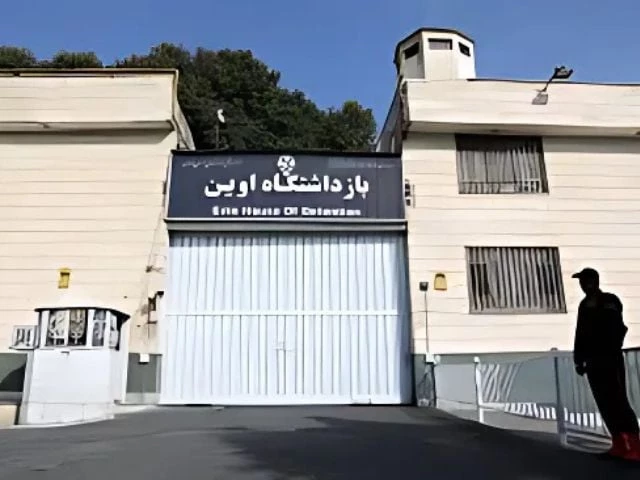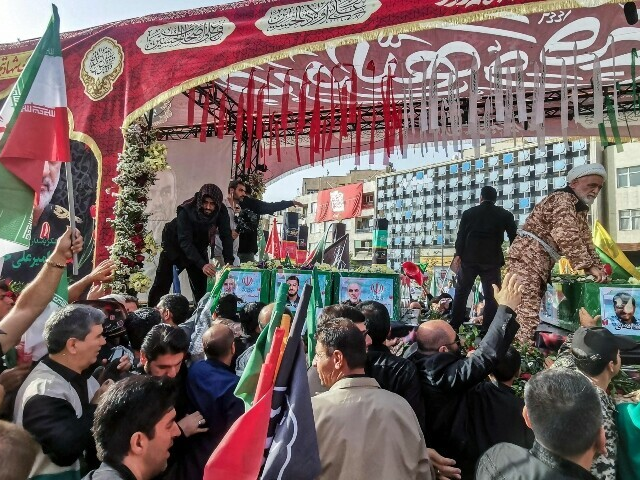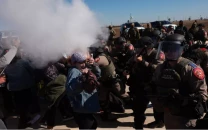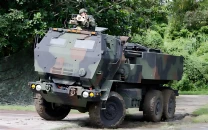'71 killed by Israeli strikes on Iran's Evin Prison'
Prison's administrative building damaged in attack, says Iranian judiciary spokesperson

Israel's attack on the Evin Prison in Iran's capital, Tehran, on June 23 killed 71 people, Iranian judiciary spokesperson Asghar Jahangir said on Sunday.
At the end of an air war with Iran, Israel struck Tehran's most notorious jail for political prisoners, in a demonstration that it was expanding its targets beyond military and nuclear sites to aim at symbols of Iran's ruling system.
“In the attack on Evin prison, 71 people were martyred, including administrative staff, youth doing their military service, detainees, family members of detainees who were visiting them and neighbours who lived in the prison’s vicinity,” Jahangir said in remarks carried on the judiciary's news outlet Mizan.
Jahangir had previously said that part of Evin prison's administrative building had been damaged in the attack and people were killed and injured. The judiciary added that the remaining detainees had been transferred to other prisons in Tehran province.
Evin prison holds many foreign nationals, including two French citizens detained for three years.
"The strike targeting Evin prison in Tehran put our citizens, Cecile Kohler and Jacques Paris, in danger. It is unacceptable," France's Foreign Minister Jean-Noel Barrot had said on social media X after the attack.
Earlier on Saturday, Iran held a mass funeral procession in Tehran for dozens of military commanders and high-ranking officials killed by Israeli airstrikes during a 12-day conflict that has escalated regional tensions.

State media reported that the ceremony to honour the martyrs commenced in Enghelab Square, with thousands of mourners dressed in black and waving Iranian flags.
Read: Iran holds mass funeral for top brass assassinated by Israeli strikes
The procession is moving towards Azadi Square, a symbolic route used in major national events.
12-day war
The 12-day war that began with unprovoked Israeli military strikes in Iran on June 13 resulted in hundreds of deaths and thousands of injuries on both sides, according to official figures released by the respective governments.
Israel launched the first strikes, targeting Iranian nuclear and military facilities with more than 200 fighter jets.
According to Iran’s Ministry of Health and Medical Education, at least 610 people were killed and 4,746 injured, including 185 women and 13 children. Public infrastructure also sustained extensive damage, including hospitals, ambulances, and emergency units.
Among those killed were senior nuclear scientists and high-ranking military commanders, including the Chief of Staff of the Armed Forces and the commander of the Islamic Revolutionary Guard Corps. The youngest confirmed fatality was a two-month-old infant.
Read more: If necessary, will bomb Iran again: Trump
In response, Iran fired hundreds of ballistic missiles and drones at Israeli targets, with Tel Aviv and Haifa among the hardest hit.
The Israeli military stated that up to 1,000 projectiles were launched, of which 90 percent were intercepted. The attacks resulted in 28 deaths and 3,238 injuries across Israel.
According to the Armed Conflict Location and Event Data (ACLED) project, Israel carried out at least 508 airstrikes on Iran during the escalation.
Another count from Al Jazeera’s Sanad fact-checking agency - italicise placed the number at 145 combined Israeli and US strikes.
Iranian retaliation included at least 120 missile and drone attacks, with some reaching Israeli civilian and critical infrastructure.
Notable targets included Soroka Medical Center, the Israeli Military Intelligence School, the Ministry of Interior in Haifa, and several energy facilities.
The US joined the conflict on June 22 with bunker-buster bombings on Iran’s nuclear facilities in Natanz, Fordow, and Isfahan.
A US-brokered ceasefire was reached on June 24, shortly after Iran launched missiles at the largest US airbase in the Middle East, located in Qatar.
Iranian authorities reported a mass internal displacement, with nearly nine million people leaving major cities such as Tehran and heading toward northern provinces bordering the Caspian Sea.
The ceasefire remains in place, though both nations have warned of further action if provoked.



















COMMENTS
Comments are moderated and generally will be posted if they are on-topic and not abusive.
For more information, please see our Comments FAQ